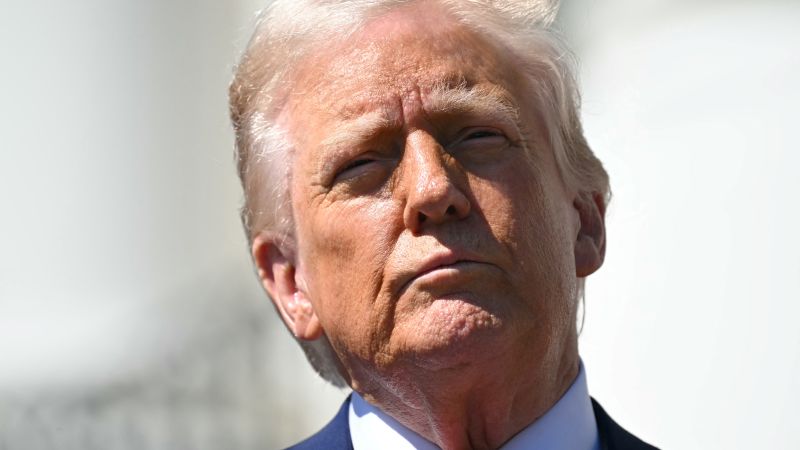Markets soared after Trump paused "reciprocal" tariffs. Here's the latest US stocks skyrocketed after President Donald Trump announced a three-month pause on all the “reciprocal” tariffs, with the S&P 500 posting its best day since October 2008. It was also the third-best day for the benchmark index since its modern-day version was formed in 1957.
. But enormous tariffs will remain on China, the world’s second-largest economy. Trump said they would be increased to 125% after Beijing announced further retaliatory tariffs against the US earlier Wednesday.

Those duties on all US imports of 84% are now in effect. All other countries that were subjected to reciprocal tariff rates would see rates go back down to the universal 10% rate, Trump said. Here’s the latest on tariffs: Historic rallies: The about-turn triggered a massive rally on Wall Street, with the S&P 500 posting its best day since October 2008 on Wednesday.
Asian and European markets also rebounded on Thursday. Neighbors spared: Mexico and Canada won’t face the 10% tariffs, a White House official told CNN. Almost every good coming from the two nations will be tariffed at 25% unless they are compliant with the US-Mexico-Canada Agreement.
But that does not apply to sector-specific tariffs Trump has imposed. Why Trump backed down: Historically, treasuries rally in moments of stock market selloffs as investors shift assets to a safehaven. Alarm inside the Treasury Department over signs of distress in the US government bond market played a key role in Trump’s decision to pause “reciprocal” tariffs, according to three sources.
Trump acknowledged he’d been watching the turmoil. “The bond market is very tricky,” he told reporters. Making deals: Treasury Secretary Scott Bessent said the pause would allow time to negotiate new trade agreements.
Trump said he intends to make “fair deals for everybody,” including China, which he said wants to come to an agreement. Xi-Trump call expected: Commerce Secretary Howard Lutnick said today that he is not engaging with Chinese officials on tariffs, nor is Bessent. But Trump “expects to have conversations” with Chinese President Xi Jinping, he said.
What experts are saying: Joe Brusuelas, the chief economist of consulting firm RSM US, warned the shift in tariff policy may not be enough to stave off a recession . In a note to clients yesterday afternoon, Goldman Sachs economists projected a 45% chance of a recession over the next 12 months. Europe welcomes Trump’s move to pause reciprocal tariffs European Commission President Ursula von der Leyen says she welcomes US President Donald Trump’s move to pause his “reciprocal” tariffs.
“It’s an important step towards stabilising the global economy,” she said Thursday . “Clear, predictable conditions are essential for trade and supply chains to function.” “Tariffs are taxes that only hurt businesses and consumers.
That’s why I’ve consistently advocated for a zero-for-zero tariff agreement between the European Union and the United States.” Last week, Trump had announced 20% tariffs on imports from the European Union as part of his plan to levy “reciprocal” tariffs on dozens of countries. He paused those tariffs yesterday in a surprise reversal, with the exception of duties imposed on China.
European stock markets rallied after the tariff pause. Europe’s benchmark STOXX 600 index was 5.5% higher at the start of trading Thursday.
France’s CAC index was up 2.9% and Germany’s DAX jumped 8.3%, while London’s FTSE 100 index rose 6.
1%. China’s currency has fallen to its weakest level since 2007. Here's how that affects the trade war China’s yuan has fallen to its lowest level in nearly 18 years, in what some analysts say is a sign the central bank is further easing its grip on the currency to help offset the negative impact on exports from an escalating trade war.
On Thursday, the onshore renminbi dropped to as low as 7.351 per US dollar, the weakest since late 2007, before recovering some losses to 7.342, according to Reuters.
The People’s Bank of China , which manages the yuan and sets its daily reference rate, weakened it to 7.209 yuan a dollar, it said. A weaker yuan could alleviate some pressure on Chinese exporters by making their sales — a key economic driver for the country — cheaper as trade tensions between China and the US grow.
US Treasury Secretary Scott Bessent has warned China against using currency devaluation as a tool to counter Trump’s tariffs. “If China starts devaluing, then that is a tax on the rest of the world, and everyone will have to keep raising their tariffs to offset the devaluation,” he said in an interview with Fox Business Network on Wednesday. “I would urge them not to do that and to come to the table.
” China’s offshore renminbi plunged to an all-time low of 7.429 per US dollar on Wednesday, a record since the offshore market was established in 2010, according to Reuters. It has since pared some of those losses.
.
















